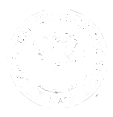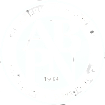NEUROLOGICAL SERVICES
-
Epilepsy is a medical condition that produces seizures affecting a variety of mental and physical functions. It’s also called a seizure disorder. When a person has two or more unprovoked seizures, they are considered to have epilepsy. › Read More
-
Like other types of pain, headaches can serve as warning signals of more serious disorders. This is particularly true for headaches caused by inflammation, including those related to meningitis as well as those resulting from diseases of the sinuses, spine, neck, ears, and teeth. › Read More
-
Botulinum toxin injection therapy (also known as “BOTOX® therapy” or onabotulinumtoxinA) is used to treat dystonia — a neuromuscular disorder that produces involuntary muscle contractions, or spasm — that affects muscles that control movement in the eyes, neck, face, limbs, voice box, or the smooth muscle in the bladder.
› Read More
-
Multiple sclerosis is an autoimmune disease that affects the brain and spinal cord (central nervous system).
› Read More
-
A stroke happens when blood flow to a part of the brain stops. A stroke is sometimes called a “brain attack.” If blood flow is stopped for longer than a few seconds, the brain cannot get blood and oxygen. Brain cells can die, causing permanent damage. › Read More
-
Parkinson’s disease is a disorder of the brain that leads to shaking (tremors) and difficulty with walking, movement, and coordination. › Read More
-
Movement disorders are a group of nervous system (neurological) conditions that cause you to have abnormal voluntary or involuntary movements, or slow, reduced movements. › Read More
-
Neck pain and back pain are one of the most common reasons for physician visits. Although the traumatic injures are the common cause of pain other pathologies must be considered carefully in the absence of traumatic history. › Read More
-
An electroencephalogram (EEG) is a test to measure the electrical activity of the brain. EEG is used to look at your brain activity. It can help diagnose seizures. It may also be used to diagnose or monitor the certain health conditions. › Read More
-
Pain management is important for ongoing pain control, especially if you suffer with long-term or chronic pain.
› Read More
-
Sleep disturbances and sleep disorders are commonly associated with neurological diseases, and neurological impairments of sleep reveal much about the brain circuitry involved in sleep regulation. Many neurological disorders are now recognized to cause disruptions of sleep. › Read More
-
An electromyogram (EMG) measures the electrical activity of muscles at rest and during contraction. Nerve conduction studies measure how well and how fast the nerves can send electrical signals.
› Read More


 845-454-6491 (FAX)
845-454-6491 (FAX)





